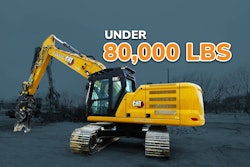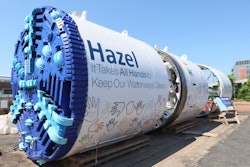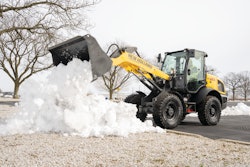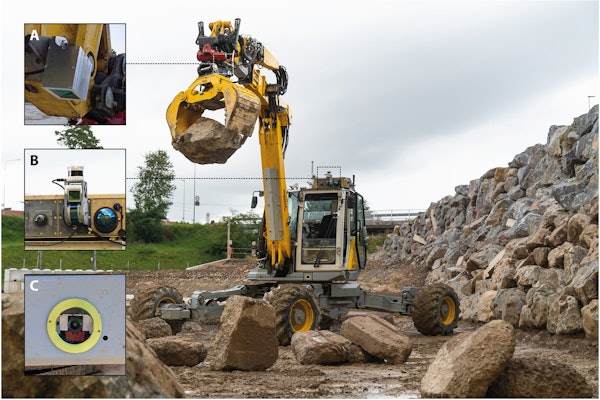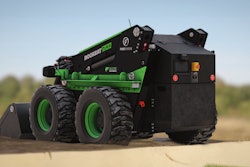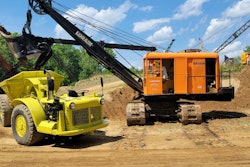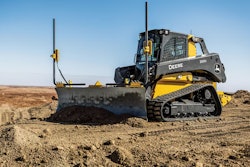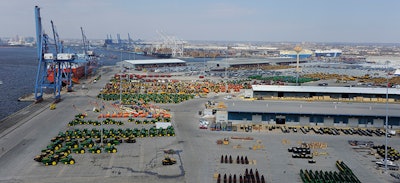
Editor's Note: This story was updated April 12, 2024, with comments from Komatsu.
The closing of the Port of Baltimore due to the collapse of the I-695/Francis Scott Key Bridge should not have a large impact on construction equipment supplies and prices, according to an international market research firm.
The port was closed March 26 after the cargo ship Dali crashed into a bridge pillar causing the bridge deck to collapse. Crews are working to clean up the debris and remove the ship to reopen the channel. A partial reopening is scheduled for the end of this month, with a complete reopening scheduled for the end of May.
Alastair Hayfield, senior research director Interact Analysis, does not foresee a major impact on construction equipment supply and prices. Though Baltimore is among the top U.S. ports for construction equipment imports and exports, ports in Georgia are also major players in the international construction equipment trade.
“Given the timeline that the port is giving in terms of reopening,” Hayfield says, “I really don't think there's much of a dramatic impact.”
There could be instances of certain models or specific dealers being affected should there be any delays or if the machinery ends up somewhere other than intended.
“It seems like this is really only a temporary issue at the moment,” he says. “And you’re certainly not seeing any of the major OEMs in the U.S. putting out press releases that say we're worried about production or capacity or something like that.”
“It's obviously very unfortunate. It's a tragic incident,” he adds. “But I think in terms of equipment availability, there's not going to be that much impact.”
Some of the major construction equipment manufacturers using the Port of Baltimore include Case, New Holland, Caterpillar, John Deere and Komatsu.
Komatsu reports that it has experienced “very minimal impact from the port closure."
“For the next several weeks, we’re expecting port delays in other areas of the East Coast, so we may face some congestion until Baltimore can be fully re-opened,” reads a company statement. “We are working closely with our providers to mitigate any potential impacts from these temporary diversions.”
CNH Industrial, parent company of Case and New Holland, said it was saddened by the bridge collapse and that it is monitoring the situation at the port, where it imports and exports construction and agricultural equipment. The company adds that it does not expect any material impact on its ability to serve customers.
According to the Baltimore port, CNH’s construction and agricultural equipment going through roll-on/roll-off averages 14,000 to 16,000 units a year. Its construction equipment going to and from the port includes excavators, compactors, wheel loaders and backhoes.
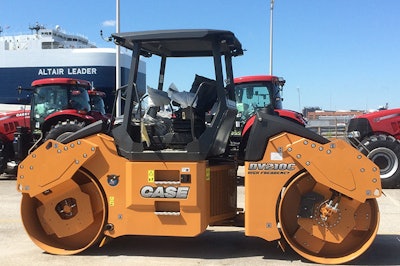 A Case DV210C tandem-drum compactor at the roll-on/roll-off terminal at the Baltimore Port.Maryland Port Administration
A Case DV210C tandem-drum compactor at the roll-on/roll-off terminal at the Baltimore Port.Maryland Port Administration
Komatsu says its equipment shipments destined for the Port of Baltimore have been primarily rerouted to ports in Norfolk, Virginia; New York; Wilmington, Delaware; and Newark-Elizabeth, New Jersey. “All material and machines that were already en route to Baltimore have been routed to an alternative port,” according to the company statement.
Hayfield also doubts there will be any price increases.
“There should be sufficient volume within inventory or from production within the U.S. to meet demand,” he says. “There might be specific dealers that can't get stock, and that might push up price. But I'd be surprised. I don't think we're looking at a shortage of equipment here.”
The Baltimore port’s reopening should return logistics operations back to normal for manufacturers.
“I would think that if it opens as the schedule is … that they will continue business as normal, basically, and look to continue to use that as a port. I don't think there'll be any changes there.”
To read the full report by Interact Analysis analyst Alexander Jones click here.





